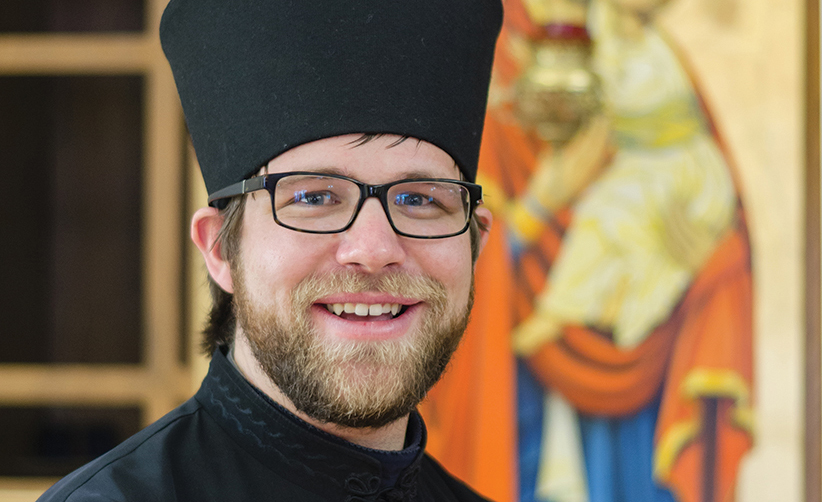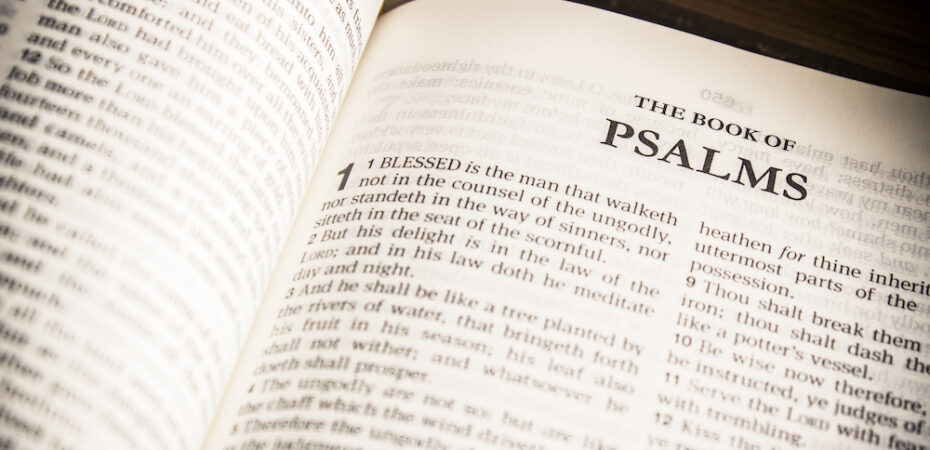Psychology of the Psalms
The mental health benefits of chanting the psalms
Father Deacon Basil Ryan Balke Comments Off on Psychology of the Psalms
 In addition to my work as a deacon, I am a therapist with a counseling practice in Colorado and work to unify the spiritual and psychological in my work with clients. This work has often turned me back to the writing of the early Church Fathers, who spoke about psychological and spiritual lives with amazing insight and accuracy. But what practice was lauded by the Fathers perhaps more than any other for the development of a person both spiritually and psychologically? It was the chanting of the psalms.
In addition to my work as a deacon, I am a therapist with a counseling practice in Colorado and work to unify the spiritual and psychological in my work with clients. This work has often turned me back to the writing of the early Church Fathers, who spoke about psychological and spiritual lives with amazing insight and accuracy. But what practice was lauded by the Fathers perhaps more than any other for the development of a person both spiritually and psychologically? It was the chanting of the psalms.
So, to speak about something which has consumed my time over the last few years, here are some thoughts that look at the psychological importance of the chanting of psalms.
Right here at the beginning, it is important to state that the psalms and the recitation of the psalms do not and cannot take the place of mental health treatment. However, many studies have begun to indicate that chanting a psalm can reduce symptoms of anxiety and increase overall emotional well-being. However, the reason for chanting psalms within a Christian context is not for psychological benefits or the treatment of a psychopathology. The Christian prays in order to find communion with God and experience that communion throughout life. However, the process of praying the psalms provides a way that Christians can focus on the here and now and become aware of God’s providence, trusting in him amid stress and anxieties. Many times this here-and-now experience can be defined in secular psychology as mindfulness, and it has been closely connected with reductions in anxiety and stress.
Some of the major struggles affecting the psychology of parishioners and clergy alike are stress and anxiety, at clinical and subclinical levels. The clergy’s awareness of this reality and how to assist in appropriate ways, like the chanting of the psalms, provides immediate pastoral benefit.
There are a number of hypotheses for why this practice of chanting the psalms is associated with stress reduction and/or anxiety reduction. The primary theory is that the practice brings about an existential consciousness of someone’s connection with their emotional experience and how it relates to their faith. This can be seen in the emotional connection that people have when, for example, chanting Psalm 38. This psalm may seem to be one of the more difficult to read from a content perspective, because it speaks about the anger of God toward us: “Lord, do not punish me in your anger; / in your wrath do not chastise me! / Your arrows have sunk deep in me; / your hand has come down upon me” (vv. 2-3)
It might seem strange that someone would want to pray a psalm where they feel connected to the wrath and anger of God. However, this psalm reflects the emotions many people are already experiencing when they have sinned and wonder about the judgment of God. Bypassing this emotional experience just because the feelings are uncomfortable is psychologically immature; rather, a certain amount of validation of these emotions is necessary.
The Christian can see his own sin and the anger God can have toward him because of those sins. This action connects him to the larger experience of God that every Christian must feel. It also calls the Christian to repentance and metanoia in response to one’s sin. In other words, when one is in the emotional state of feeling steeped in sin and God’s anger, it ultimately connects him with the larger context of God’s mercy. Psalm 38 likewise reflects this, as several verses later, we hear about hope in God’s loving redemption: “For in You, O Lord, I hope; / You will hear, O Lord my God. / For I said, ‘Hear me, lest they rejoice over me, / Lest, when my foot slips, they exalt themselves against me’” (Ps 37:15-16, NKJV).
In context, this psalm is not merely about the anger of God, but rather about his mercy and the redemption of the person praying it. Pastorally, the clergy can help parishioners experience the emotional connection found in the psalms such as Psalm 38.
This article is intended to encourage all of us to not only continue to pray the psalms in the liturgy, but also for us to continue to teach those around us the importance of praying the psalms, first for the spiritual, but also for the mental health benefits that may come from them.
FATHER DEACON BASIL RYAN BALKE is a Byzantine deacon, licensed professional counselor, director of Mount Tabor Counseling, mounttaborcounseling.com; one of the hosts of the Catholic Psyche Podcast, catholicpsyche.com; director of custom solutions for the Center for InMinistry Development, inministrydevelopment.com; and serves as a deacon of the Eparchy of Phoenix.





